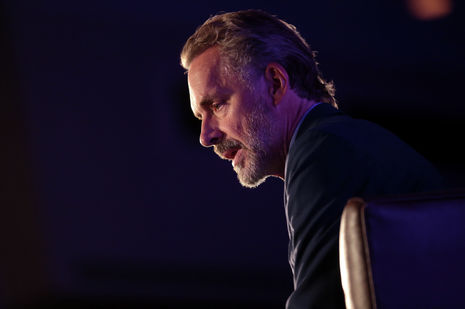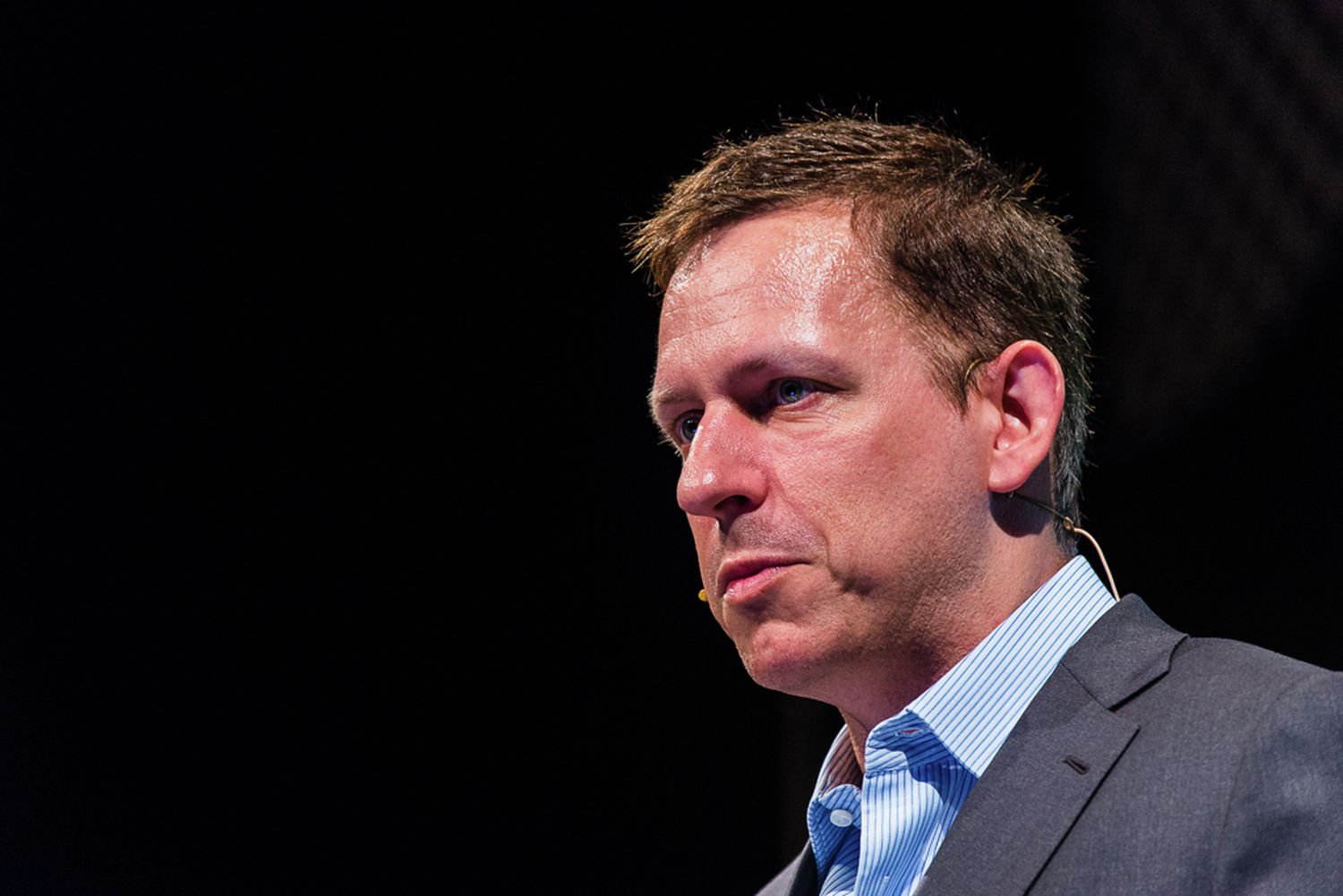A right to speak over
In this response piece, Juliette Guéron-Gabrielle argues that far from being in opposition to freedom of speech, the Byline Times’ investigation into the alleged Thiel network strengthens it

To defend the right to free speech is an honourable cause. To defend the right to speak over someone, to speak above the facts, and to speak before investigations have run their full course, is less so. This is how an article recently published by Varsity read, calling into question Nafeez Ahmed’s investigation for Byline Times.
Instead of taking Ahmed’s article as something to be taken further, the article dismisses it outright as “a half-baked conspiracy theory”. The writer takes the fact that this investigation is not (or not yet) echoed in mainstream press to be a proof of its lack of foundation. It is somewhat paradoxical that the author’s way of defending free speech is to doubt the credibility of the press and separate it between the “good” press (the one that does not publish this investigation) and the “bad” press (the press that publishes Nafeez Ahmed).
“It is a balancing effort in pursuit of better discourse, and a more equal public space, rather than an effort to censor”
For an article commenting on an investigation rooted in establishing the facts, the article’s criticisms seem strangely moral (“only the sick-souled insist on reading sinister motivations in the act of others”) and do little to engage with the precise allegations put forward by the article such as the presence of Thiel Capital’s Chief of Staff, Charles Vaughan, at meetings with the Cambridge academics.
It seems especially naïve to waive away Ahmed’s worries about Thiel’s connection to Cambridge academics, when it has already been established that Thiel’s data-mining company Palantir was involved in funding Cambridge Analytica. A company whom courts are investigating for breaches of privacy, and who profited from a psychological profiling quiz set up by Cambridge academic Aleksandr Kogan. A company who reached out to Cambridge PhD student Michal Kosinski for the permission to use an app to mine Facebook data he set up. Kosinksi refused, before joining the Guardian to author the first article on what would become the Cambridge Analytica scandal. Thiel, through Palantir, clearly already had ties to Cambridge.
A better defence of free speech would be to encourage further investigation into these allegations and then conclude about the nature of Thiel’s ties to Cambridge academics, and the lead up to the invitation of Charles Murray and Jordan Peterson to Cambridge. This would in no way undermine free speech. It would only strengthen free speech by grounding it in knowledge and fact.
“This seems a victory for hate speech rather than a victory for free speech”
To make Ahmed’s investigation about “free speech” is to refuse to engage with his findings with intellectual honesty. The questions raised by the investigation do not seem to be about “free speech” as much as about who’s speech should be platformed. Inviting a speaker is always a subjective judgement. It is not the choice between speech and silence; it is the choice between one form of speech and another. That an alleged network of academics chooses to extend invitations to people that share their political opinions is not inherently problematic. A problem arises if they choose to do so in secrecy, away from scrutiny, and then present invitations coming from a group as emanating from individuals acting independently. Hence, it is important that the free press investigates their practices, even if to conclude that they are not, in the end, malicious.
Many other controversial speakers have not been invited to speak at the Union or other campus events, with no one protesting that free speech is dying as a result. If a group is systematically extending invitations to controversial speakers from only one side of the political aisle (the far right), then questioning their legitimacy to do so does not attack “free speech”. It attacks, on the contrary, an effort to forcefully tilt discourse in one direction rather than another. It is a balancing effort in pursuit of better discourse, and a more equal public space, rather than an effort to censor.
The author of the article thus fails to engage with the fact that the right to free speech exists in a network with other rights, for instance, the right of all to dignity and respect. I don’t think it is a victory for free speech if individuals supportive of theories linking lower economic status with race and intelligence, as Murray does, or supporting what they call “traditional” gender hierarchies, and calling Hitler “an organisational genius”, as Peterson does, are invited to Cambridge without allowing for sufficient scrutiny. This seems a victory for hate speech rather than a victory for free speech. Such invitations and platforming entail the failure of the University to uphold the right to equal respect and recognition of its students.
Nafeez Ahmed investigated the alleged network of friends, academics, and donors that pushed for the invitation of Jordan Peterson and Charles Murray to the University campus. He is not trying to silence anyone; if anything, he is contributing to the defence of free speech by giving the public a right to know the context in which speakers, like Murray, who believe success is determined genetically in theories uncomfortably close to eugenicist thinking, or speakers that claim the right not to address their transgender students by their pronouns, like Peterson, are invited to Cambridge. Ahmed’s article is an act of free speech. Why the effort to characterise it as anything else?
N.B. This article was written before Prof Gopal personally attacked Varsity writers on Twitter. I disagree with the substance of the article, but not with the legitimacy of its writer to share his opinions in Varsity. I stand in solidarity with CUJS’s statement about Prof Gopal’s tweets.
 News / Cambridge study finds students learn better with notes than AI13 December 2025
News / Cambridge study finds students learn better with notes than AI13 December 2025 News / Cambridge Vet School gets lifeline year to stay accredited28 November 2025
News / Cambridge Vet School gets lifeline year to stay accredited28 November 2025 Science / Did your ex trip on King’s Parade? The science behind the ‘ick’12 December 2025
Science / Did your ex trip on King’s Parade? The science behind the ‘ick’12 December 2025 News / Uni Scout and Guide Club affirms trans inclusion 12 December 2025
News / Uni Scout and Guide Club affirms trans inclusion 12 December 2025 Arts / Modern Modernist Centenary: T. S. Eliot13 December 2025
Arts / Modern Modernist Centenary: T. S. Eliot13 December 2025








